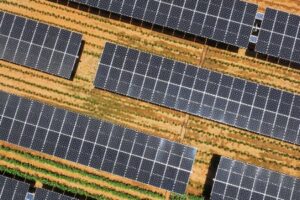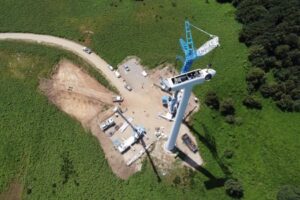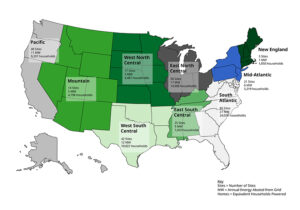Four Senators urge Biden to increase Chinese solar tariffs


(Trina Solar’s 210mm n-type i-TOPCon cells roll off production line. Credit: Trina Solar)
Senators Jon Ossoff (D-CA), Sherrod Brown (D-OH), Marco Rubio (R-FL), and Reverend Raphael Warnock (D-GA) released a letter urging President Biden to increase tariffs on Chinese-made solar module, cell, and wafer imports under Section 301 of the Trade Act of 1974.
According to a recent study from Wood Mackenzie, in 2023, the price of a solar panel manufactured in China dropped to 15 cents per watt, more than 60% below the price of a U.S.-made panel. The Senators argued China’s heavily subsidized products are hurting U.S. efforts to restore domestic solar manufacturing.
“China’s aggressive subsidies for its own solar manufacturing industry demonstrate its intent to control the industry globally,” the Senators wrote in the letter to Biden. “By 2026, China will have enough capacity to meet annual global demand for the next ten years. This capacity is an existential threat to the U.S. solar industry and American energy security.”
The Factor This! podcast broke down all angles of the Auxin Solar tariff petition in a four-part series, which included an exclusive interview with Auxin Solar CEO Mamun Rashid. Subscribe today wherever you get your podcasts.
Pt. 1: Who is Auxin Solar? An exclusive interview with the CEO behind the bitter solar tariff fight
Pt. 2: Inside the solar industry’s $5 million fight against new tariffs
Pt. 3: Rebuilding domestic solar supply chains will hinge on incentives, not tariffs, experts say
Pt. 4: How the solar industry swayed Biden on import tariffs
Update: Commerce Department issues a preliminary determination in the Auxin Solar case
While American solar manufacturing has boomed since the passage of the Inflation Reduction Act, the Senators say more legislation is needed to strengthen the American manufacturing base.
“These heavily subsidized and artificially low prices put U.S. solar manufacturers at an extreme disadvantage during a critical turning point in the development of the domestic solar manufacturing industry,” the letter said. “Section 301 tariffs are needed to avoid dire consequences not only for our economic and national security, but also for the thousands of workers employed by these manufacturers.”
Last August, the U.S. Department of Commerce issued a final ruling in the Auxin Solar tariff case, a long-awaited decision stemming from an investigation that held up the solar industry for more than a year.
Commerce determined that solar cells and modules completed in Cambodia, Thailand, Malaysia, and Vietnam from parts and components manufactured in China are circumventing U.S. trade duties against China. The agency determined that country-wide determinations were appropriate given their findings.
In February 2022, San Jose, California-based solar manufacturer Auxin Solar alleged unfair trade practices from Chinese suppliers and asked Commerce to intervene. The Department of Commerce began investigating in March 2022 whether solar manufacturers in China were using four countries in Southeast Asia — Thailand, Malaysia, Cambodia, and Vietnam — as a conduit to evade American tariffs.




